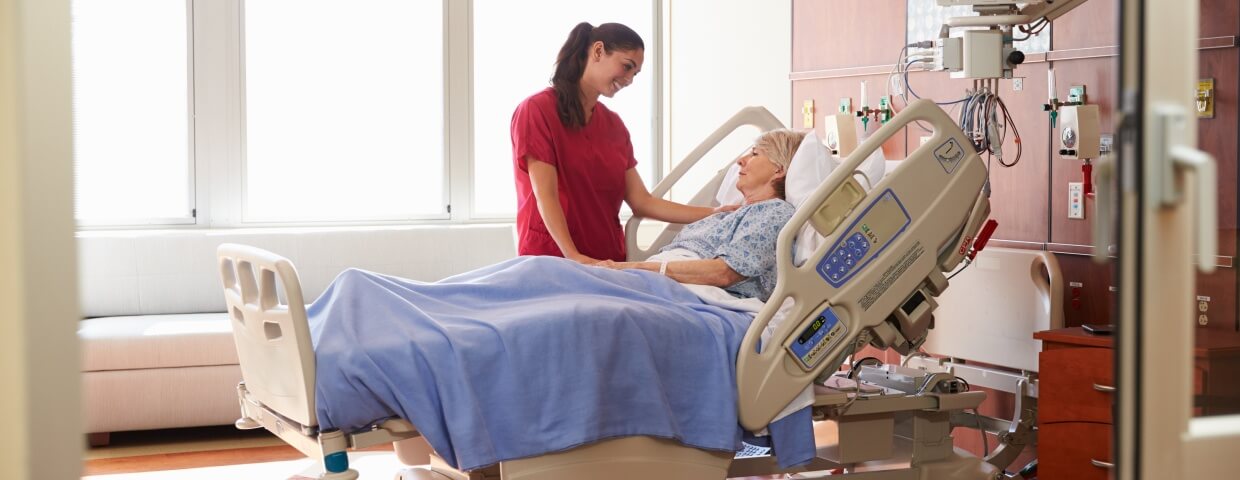Posted by Heart Hugger on Aug 29, 2019 5:40:10 PM

There usually tends to be a lot of anxiety around the idea of open heart surgery, and typically that is because patients such as yourself aren't sure of what to expect. We wanted to put your nerves at rest as much as we can, so we're going to ease your mind by giving you a glimpse of what your day could look like when you go in for open heart surgery.
Checking In for Surgery
Medical facilities will always give you a time to report for your scheduled surgery. To make sure things go smoothly, we recommend that you leave plenty of time for yourself to get there.
You'll want to make sure you know exactly where you are supposed to be for check-in. We recommend figuring out the location, which building, and even which office you will need to report to. Many times this can be confusing the day of, so it doesn't hurt to acquaint yourself with the location beforehand.
Family members are allowed to be with you when you meet the anesthesiologist and surgical team (a little extra peace of mind for you and your loved ones). After that, you will be relocated to the area where you will be prepped for surgery and your loved ones will be asked to wait in the lobby or waiting area until your surgery is complete.
Anesthesia
The first step in the surgery is preparation. You will be taken to your operating room and your anesthesiologist will administer anesthesia to put you under. This never takes long, but it is a very serious and necessary step in your operation. What surprises most patients is how soon they go under once the anesthesia is administered. It happens in a flash, and the next thing you know is that you're in recovery!
While you're under, the operating team will get you set up with a breathing tube to assist your breathing while you're under, and they will also place a catheter in your bladder to relieve your body of any urine that may make its way through your body during surgery. The catheter will still be in place when you wake up from surgery, so don't be alarmed.
The Operation
During your open heart surgery, there will be at least six people in the operating room with you to attend to your needs and perform the surgery. These are:
-
The Cardiothoracic Surgeon: They specialize in surgical procedures relating to the heart, lungs, esophagus, and other organs your chest.
-
The Surgical Assistant: They are the Cardiothoracic Surgeon's partner during the surgery and provide them with everything they need and assist while operating.
-
The Nurses: There are usually multiple nurses present and they all handle the preparation of the surgical instruments and other supplies.
-
The Anesthesiologist: The anesthesiologist stays by your side to monitor your anesthesia levels throughout the surgery to make sure you don't wake up or feel anything during the surgery.
-
The Perfusionist: They are responsible for running the heart-lung machine and monitor your vitals through the surgery.
During your surgery, the cardiothoracic surgeon will focus on providing you with the best care and utilizing minimally intrusive methods. Most often, cardiothoracic surgeons will perform a sternotomy, which is a straight cut down the center of your chest. This gives them the best access to your heart and surrounding heart structures. However, depending on the surgery, the process may end up being less invasive.
You will likely (but not always) be placed on a heart-lung machine to regulate the function of your heart and lungs during your surgery. This maintains your blood circulation and the oxygen flow to your body throughout the procedure.
Once the surgery has been completed, drainage tubes will be placed in your chest and the surgical team will close your wound with surgical steel wires. These wires are meant to stay in your chest for the rest of your life and shouldn't cause you any problems. To stave off infections, many patients are given heart pillows (which actually don't have any scientifically proven success) or they are given a Heart Hugger Surgi Support Vest (the scientifically proven option) to aid in recovery.
Learn more about Heart Hugger for patient recovery or order one for your upcoming surgery!
